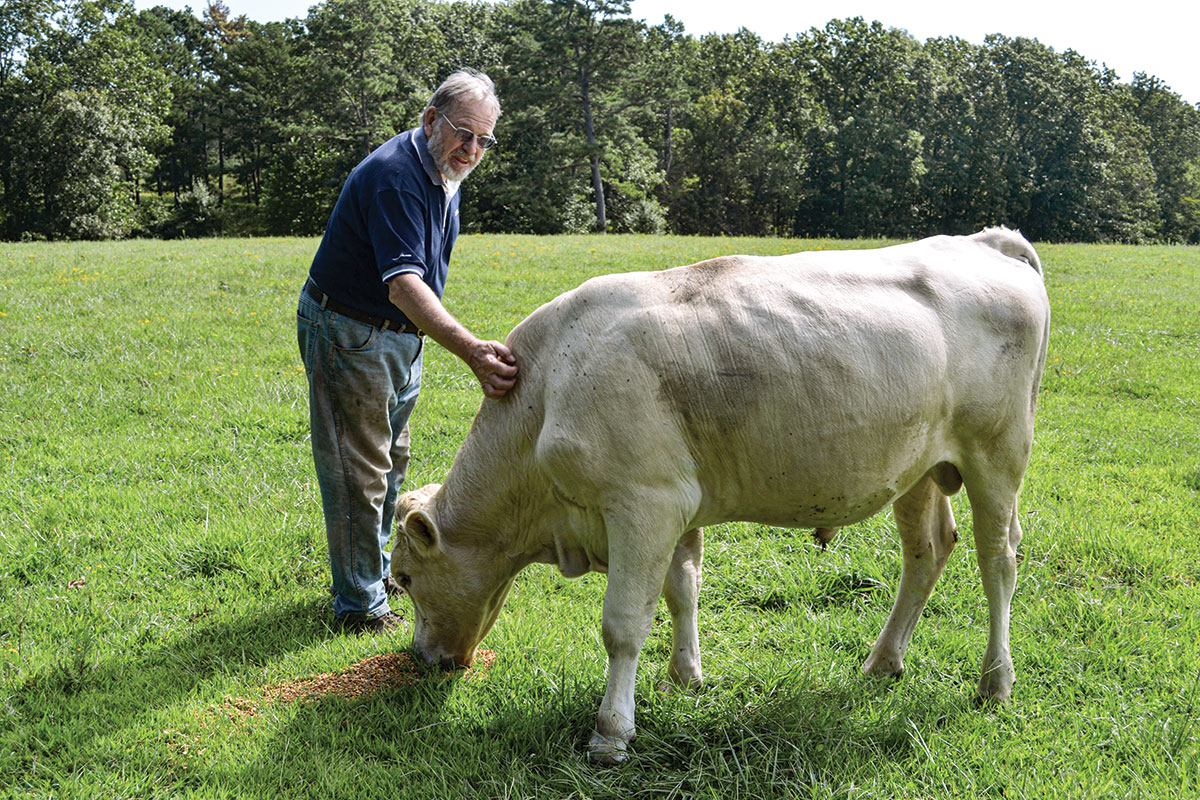
Many ten-year-old boys dream of owning a horse. For Walter Stevens it was more than a dream. It was a reality that evolved into a business. Walter and wife, Sharon, own 12 acres near Marshfield, Mo., in Webster County. They lease an additional 160 acres.
Married almost 50 years, Walter and Sharon have lived at their present location for 25 years. Walter has enjoyed being in the horse business. Although he used to train horses, that is a thing of the past. Walter also used to ride, but injuries have hampered his enthusiasm. “I’ve rode once this year. I’ve been broke and beat up. I used to train bucking horses for the rodeos, and that’s what I had a good market for in the ‘60’s. That’s where all the bone-breaking came from.” He has had several broken bones.
Walter has been raising horses for many years, and although he used to train some, he said, “I usually sell them before they’re a year old.” The most positive thing about raising horses, for him, is “trying to breed the perfect horse. I did have three stallions. They were all Grand Champions. About a month ago I sold 42 head that went to Chicago. I’ve sold 50 head of horses this year. I kept back the six I did not want to sell.”
The Paint horse is a breed that Walter said, usually carries a lot of Quarter horse bloodline in their pedigree. He likes the Paints because they bring the most money. But he has owned a variety. “I’ve been a Quarter horse man most all my life. The first horse I ever had was a Foxtrotter. Then I went to Appaloosas and Quarter horses. Then the Paint horses started selling higher. I’ve owned four Paint stallions. But they’re all the stock horse.” Walter explained a stock horse “is not a gaited horse. It’s one used to work cattle. It’s what the cowboys ride.”
With only six horses left, Walter doesn’t plan to rebuild his herd unless the market improves because, “you can’t make any money at it.” The passing of a ‘no-slaughter’ law has been devastating to some horse owners. “Since we aren’t able to send a horse to slaughter, the bottom fell out of the horse market. Three or four years ago I was selling three-month-old colts for $6,000. Now if you get $200, you’re lucky, because people can’t cull and get better horses.”
Walter never raised horses to be slaughtered, but that is what would happen to the occasional crippled horse or a horse that didn’t reproduce. He believes the ‘no-slaughter’ law has been bad for the business and has ultimately been even crueler to the horses. “They estimate there is over 20,000 horses starving to death right now. Horses are being turned out in the Mark Twain National Forest, (an estimated 2,000 head), because people can’t afford to feed them and they won’t bring anything. They’ll starve to death this winter.”
For someone wanting to start a horse breeding business, Walter said, “Now is the time to start. It’s the time to start looking and buying the very best you can afford, because they are cheap. I don’t know how many years it’ll be before it turns around, but it will.”
Living near I-44, Walter and Sharon Stevens offer a service for other horse owners. He said, “We board horses overnight for people traveling. We have a suite in the barn.” The suite is on the second floor and overlooks the arena. There are stalls for the horses. Walter said, “One night, then they’re back to traveling. It’s kind of a horse motel, but the people stay too. We’ve had them all the way from Alaska to Argentina.”
In recent years, horse ranches have popped up all over the Ozarks. Walter admitted, “We’ve over-produced. But they’re going out of business left and right. This was going to be my retirement, and you can’t make a living at it anymore.”
But he is hopeful for his industry. And hope is invaluable.







